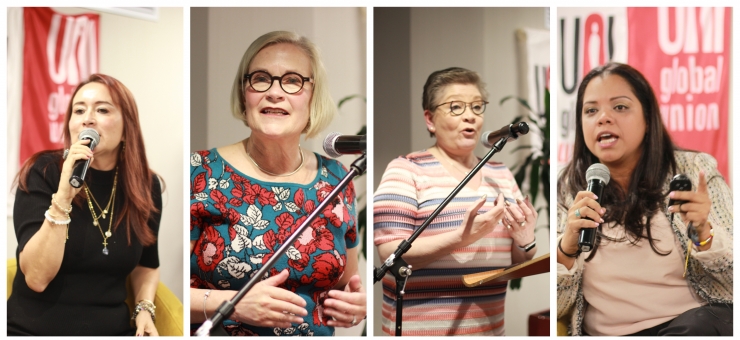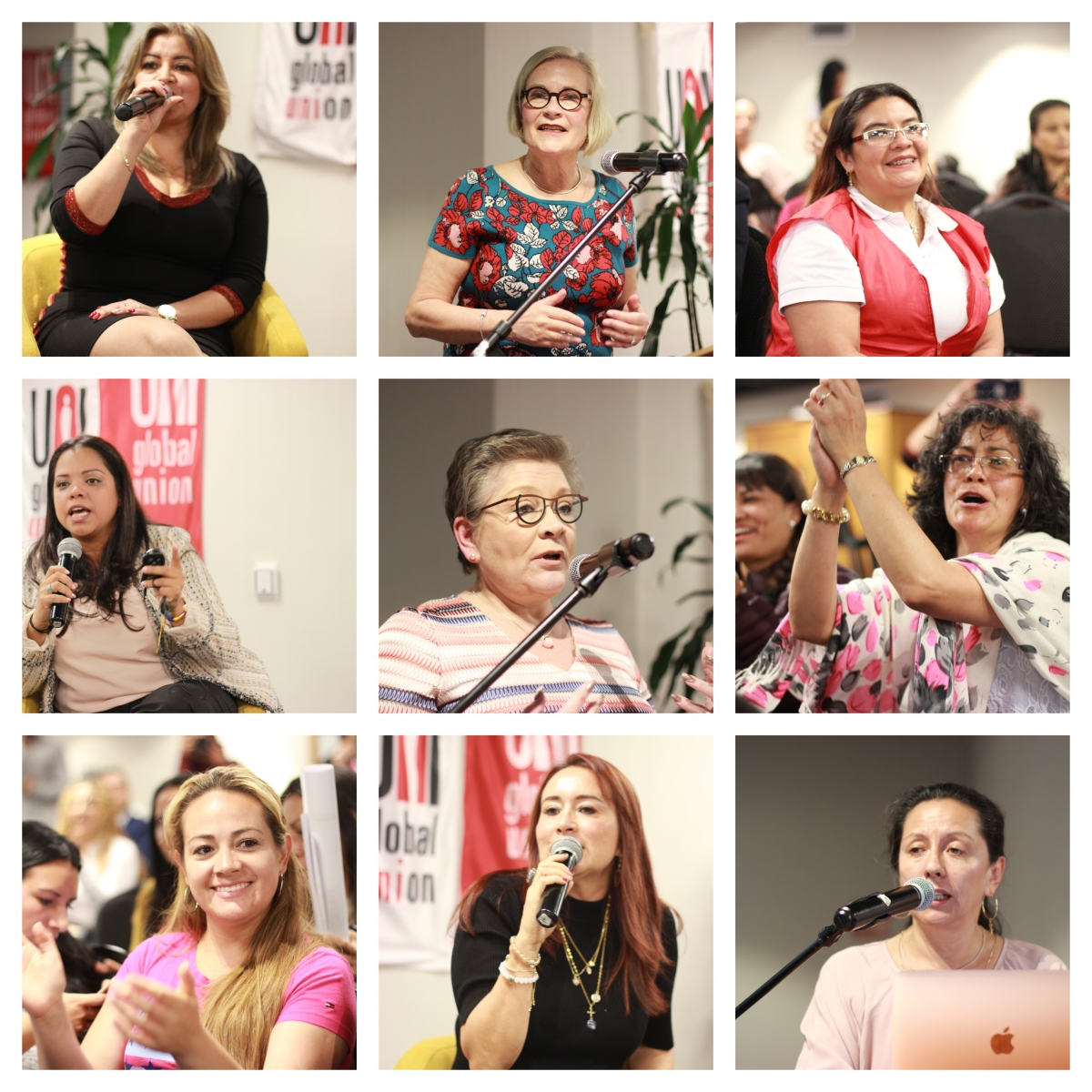News
Say it loud: without women there is no democracy!

"Without women there is no democracy" was the main message to the more than 100 participants in the First Forum of Women and Democracy in Colombia on March 30; a meeting that had the real-life examples of women who lead their unions with passion and commitment and fight for parity outside and within their organizations.
Being a trade unionist in Colombia is not easy because it is one of the most violent countries in Latin America, especially towards social and union leaders, but the testimony of Luz Fanny Zambrano, president of Sintrasaludcol; Yuli Higuera, president of Utraclaro; Luz Marina Díaz, president of the Trade Union; and Sofía Espinosa, president of UNEB, injected optimism and enthusiasm into the audience.
Each one of them is an example for Colombian trade unionism: some for forming union organizations in environments of hostility and harassment and for continuing their militancy in spite of being threatened with death; others for achieving positions of power in environments traditionally occupied by men. Seeing how these leaders pushed for progressive changes—while creating space for women to make decisions—was inspiring for all those present. It was especially powerful given the attack on democratic institutions in the region because democracies become stronger when women are represented.

The regional implications of the Peace Process and the construction of Democracy in Colombia was another point of debate in which Diana Salcedo, ILO representative, and Paola Gómez, UN Women representative in Colombia, spoke about the work being done by their organizations to reverse gender inequality.
In Colombia this inequality is aggravated by the new measures in the right-wing government’s "Development Plan" that directly impacts workers, especially women. Additionally, Colombian President Ivan Duque's objections to the statutory law of the Special Jurisdiction for Peace (JEP) are a step backwards in terms of human rights since they put at risk the peace, agreements; and credibility of future processes.
"It is not possible to talk about democracy if we do not talk about peace and it is not possible to talk about peace if we do not talk about gender," said Pilar Rueda, JEP advisor. Ms. Rueda explained the importance of the gender approach in the Peace Accords, bearing in mind that women were the main victims of the armed conflict. They are, therefore, the ones who are at the center of peace building.
Christy Hoffman, UNI Global Union General Secretary, gave a message of encouragement to the participants: "Fight for the Peace Agreement, one of the few agreements to have a gender focus. And also fight for economic inclusion. The government's current plan to deregulate labor and institutionalize informality means that there will be no prosperity for workers, and it is women who are most harmed. We are at a time when women's voices are heard louder than ever, we cannot let this opportunity slip away, sisters. We have to keep fighting to win," she said.
Ann Selin, President of Finnish trade union PAM, added: "The countries where women play an important role in society are the most financially, socially and ecologically sustainable. Solutions to the world's problems will not be found without equality and the inclusion of all genders in decision-making.
"There is no reason not to include the same proportion of women in important social development projects, such as peace. So colleagues, remember this: the world is made for you," she concluded.

